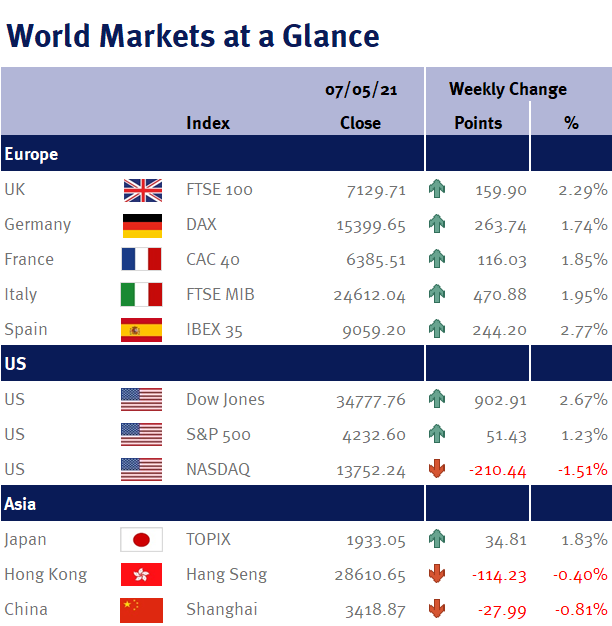Interestingly, the decision to continue with the existing bond purchase program (otherwise known as QE – quantitative easing) wasn’t unanimous – policymakers voted 8-1, as the BoE’s chief economist, Andy Haldane, dissented. However, as he is stepping down next month, we would speculate that he was simply making headlines for himself to boost his appeal (and fee) for after-dinner speaking!
As for this week’s economic data, all was very positive except for US employment: employment growth came in at just 266,000 in April versus economists’ expectations of a 1m gain – a clear sign that they had become complacent about the strength of the economic recovery. Additionally, the previous month’s employment growth was revised lower by 146,000. Consequently, the US unemployment rate rose to 6.1%.
While this obviously isn’t good for those unemployed Americans (there are now just over 8.2m more American unemployed than there were in February 2020), it clearly highlights the need for continued economic stimulus and low interest rates – which is very positive for global equity markets.
Looking ahead to this coming week, our main focus will be the market’s reaction to the US CPI inflation reading. Headline inflation could easily match levels seen a decade ago of around 3.5%, but the more important core level (which excludes volatile items such as food and energy) is likely to come in not too far from the Fed’s 2% target.
Elsewhere we have UK Q1 GDP; US, UK and Eurozone industrial production; and US retail sales.
Investment Management Team


